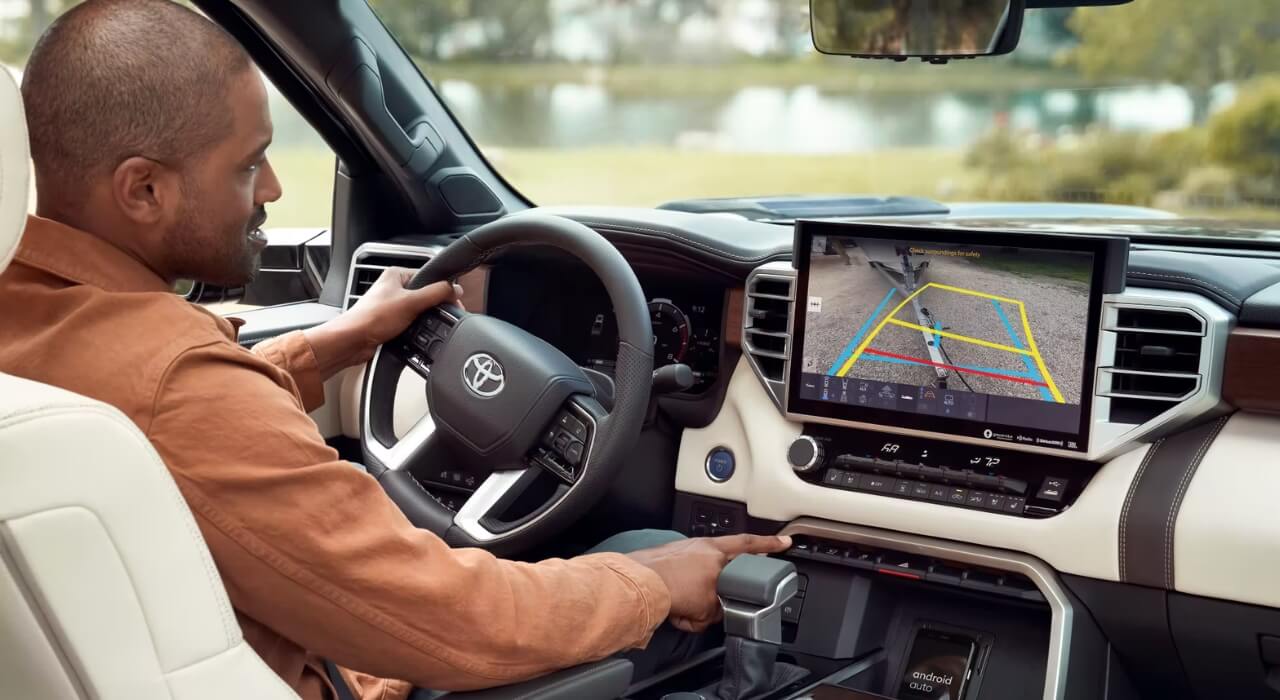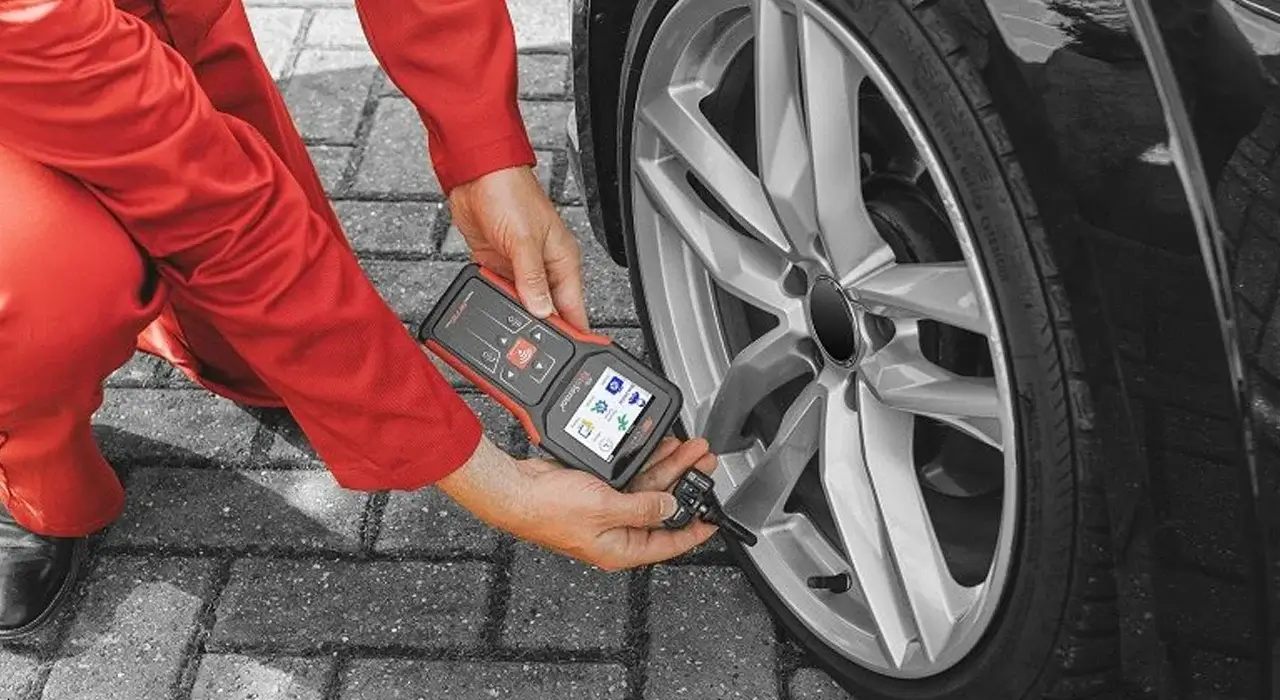According to the National Highway Transportation Safety Administration, there are approximately 11,000 accidents and 200 deaths each year that can be attributed to tire failure, with the majority of cases being caused by under-inflated tires.
Your tires must consistently be inflated to the ideal air pressure recommended by the manufacturer of your vehicle in order to guarantee optimum stability, control, handling, and braking performance.
How Do I Understand “Tire Pressure Sensor Fault”?
A group of sensors is used by the contemporary Tire Pressure Monitoring System to send vital data to a centralized management unit. The approximate air pressure inside each tire is shown by this data. A vehicle with a TPMS system can monitor tires effectively because each tire is mounted with a position-specific sensor.
Unfortunately, these sensors are not meant to be used indefinitely and usually need to be replaced at some point during the service life of a typical vehicle.
This is due to the fact that each TPMS sensor has a tiny battery attached to it that gradually discharges over time. Since these batteries cannot be replaced, failing sensors must be replaced.
What Leads to a TPMS Sensor Failure?
TPMS sensors are resilient, but they are not impervious to wear and tear. Here are a few potential causes for your tire pressure sensor to malfunction:
1. Dead or low battery power
The batteries in your TPMS sensor can last for five to seven years. However, a number of variables, including how frequently you use your car and the state of the roads where you live, can shorten or lengthen its lifespan. A failing TPMS sensor battery can result in an unusable device.
2. Rust
Your sensor’s valve stem interior may corrode as a result of dirt accumulation and other issues. This may result in the TPMS sensor ceasing to function properly or failing entirely.
3. Replace tires
Your TPMS sensor might occasionally be harmed by changing your tires.
Your TPMS sensor might occasionally be harmed by changing your tires. Therefore, it is best to ask a professional to change your tires for you if you lack the necessary technical knowledge to complete the task.
Bad tire pressure sensor symptoms
A low tire pressure can cause an illuminated TPMS or ABS warning signal, unstable steering, elevated fuel usage, and incorrect warnings.
1. Warning Light for TPMS
When the tire pressure sensor is faulty, the car’s ECU sends a message to the tire pressure monitoring system (TPMS), which displays an error message on the dashboard screen. Additionally, the TPMS warning light turns on.
2. Very poor fuel economy
Underinflated tires typically have more drag, which results in higher fuel consumption. A car will use more fuel than usual if a tire is overinflated.
Suggestion: 6 Top Reasons For Car Losing Oil But No Leak Or Smoke: How To Fix It?
The overuse of fuel may occur for a variety of reasons. However, if the TPMS is not functioning properly, it is simple to check the tire pressure.
3. ABS Beam Illumination
The illumination of the ABS lights may be a sign that the sensor is malfunctioning if your car has an indirect pressure monitoring system.
4. Side-to-side steering pulls
The car’s four tires keep it balanced and straight. The alignment of the car is thrown off if one of the tires has low air pressure. Driving is challenging as a result.
For instance, the sides of the front tires become softer if the air pressure is low. Because of this, it is challenging for the driver to maintain a straight and steady steering wheel.
If the steering begins to pull to one side but the TPMS doesn’t alert you to low pressure, one of its sensors is malfunctioning.
5. Peeling Tires
The tires on cars wear out quickly and unevenly on repeatedly constructed, improperly maintained roads. Therefore, uneven tire wear may indicate a problem with the tire pressure sensor. This issue arises because the terrain and driving conditions can harm the tires.
6. The battery is to blame.
Your battery might be the cause of the sensor’s failure in some circumstances. This could be the root of the issue if the battery in your car is older or if you haven’t driven it in a while. Sensors require batteries to function. This happens more frequently in stop-and-go traffic in vehicles, especially in warmer climates. These difficulties may be faced by delivery trucks navigating city traffic or trucks working on a construction site.
How can I identify a bad tire pressure sensor?
Using a pressure gauge is the fastest and easiest way to determine which tire pressure sensor is malfunctioning. The tire pressure can be determined with the aid of this tool.
As a result, you must compare the gauge’s final reading with the pressure displayed on the TMPS display panel. The sensor is in good shape if the pressures are the same. But if there is a discrepancy in the reading, it means that a specific tire sensor is broken.
How Can the Tire Pressure Sensor Be Fixed?
There are a few fixes you can make if your tire pressure sensor isn’t working properly. Checking the battery should be your first priority. The battery must be replaced if it is dead. The sensor itself may need to be cleaned or changed if the battery is not the issue.
- You can try cleaning the sensor with a toothbrush or compressed air if it’s clogged. You will need to replace the sensor if this doesn’t work.
- The sensor must be replaced if it is damaged. Most auto parts retailers sell new sensors.
- After changing the sensor, you should reset the system by unplugging and then replugging the battery.
- Make sure the tire pressure is accurate by checking it.
- You may need to take your Tire Pressure Sensor to a mechanic for a more thorough evaluation if you are still experiencing issues with it.
Final Words
Tire blowout incidents have significantly decreased owing to TPMS. Therefore, disobeying a TPMS warning is extremely risky. You must take immediate action and identify the problem if you discover that one of the sensors has failed. Visit Porcsi for solar-powered tire pressure monitoring systems if you’re looking for the best tire pressure sensor. They best serve you by supporting tire position exchange functionality and offering a longer sensor life.


















